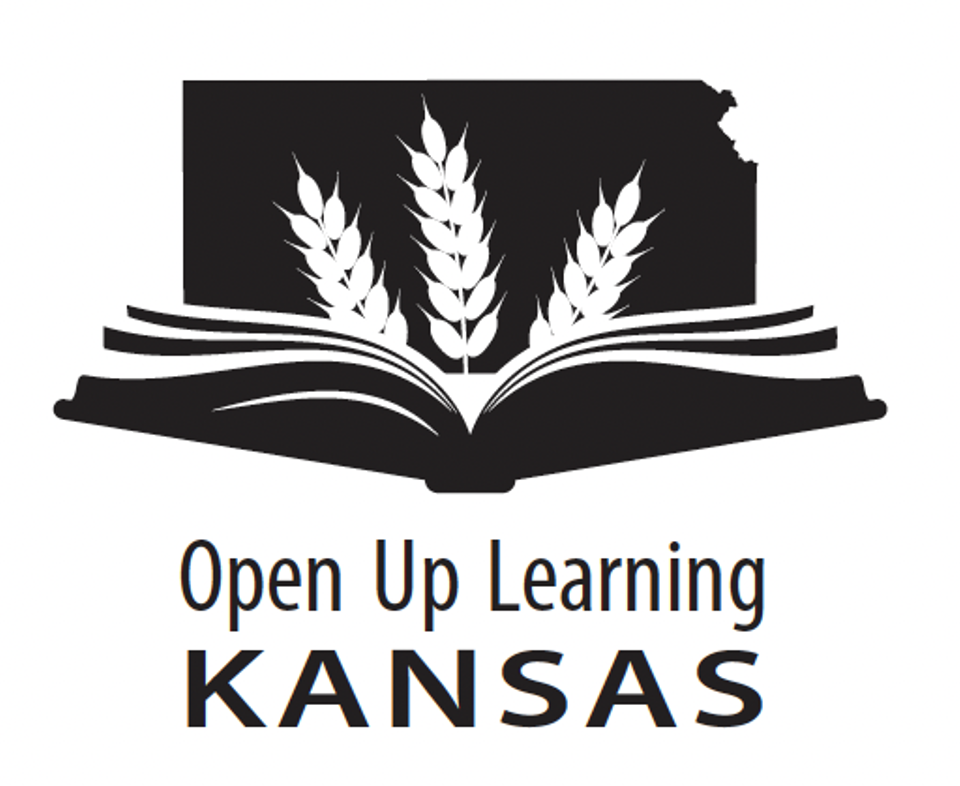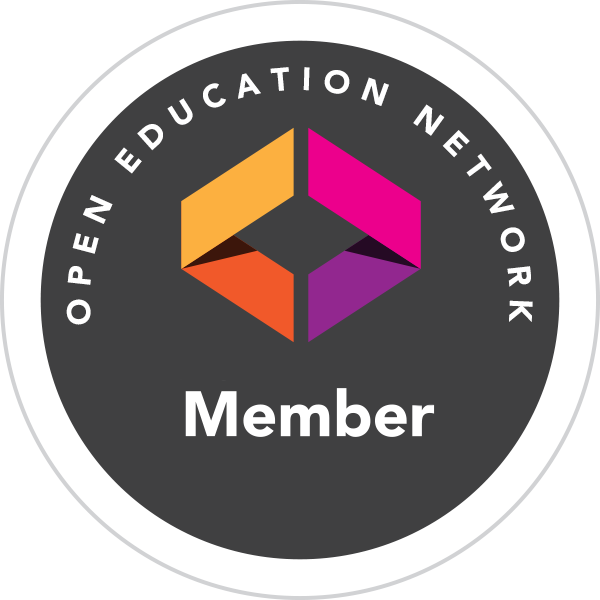What is OER?
 Open educational resources (OER) “are teaching, learning and research materials in any medium – digital or otherwise – that reside in the public domain or have been released under an open license that permits no-cost access, use, adaptation and redistribution by others with no or limited restrictions.”1 OER includes built in permission to retain, reuse, revise, remix, and redistribute the material.
Open educational resources (OER) “are teaching, learning and research materials in any medium – digital or otherwise – that reside in the public domain or have been released under an open license that permits no-cost access, use, adaptation and redistribution by others with no or limited restrictions.”1 OER includes built in permission to retain, reuse, revise, remix, and redistribute the material.
In an effort to exhibit the need for OER at institutions across the state of Kansas, the Kansas Board of Regents Student Advisory Committee conducted a survey in 2019 to demonstrate the burden of textbook costs on students at Regent Institutions. They found that 48 percent of 6,474 regent institutions’ students indicated they did not purchase or rent a required textbook in the spring semester. Seventeen percent said they did not purchase or rent three or more required textbooks.2 By not purchasing textbooks, students could be at a disadvantage, which could hinder their success in a course. With open/alternative educational resources, all students get equal and immediate access to educational materials.3
Why OER?
Hear Fort Hays State University Student Body President, Mark Faber give an address to the February 2022 Kansas OER Summit attendees about how OER impacts students. Click here to listen to his speech.
Statewide Open Up Learning Kansas Steering Committee
To encourage OER adoption across Kansas public institutions, the Open Up Learning Kansas Steering Committee was established. This committee brings together representatives from diverse Kansas public institutions who are committed to integrating OER into their campus offerings. The group convenes once a month to discuss statewide initiatives, including collaborative events, grant applications, system participation in regional and national OER organizations, OER platforms, and best practices. If your institution does not have a representative on the OER Steering Committee and you would like to add someone, email Mistie Knox,
Mission
Our mission is to increase access and equity in education by scaling the awareness and support of open education, including open educational resources and associated practices and pedagogies across the Kansas Board of Regents (KBOR) system.
Vision
Our vision is to improve student outcomes and access through increasing the thoughtful integration of high quality, open educational resources into teaching and learning across the Kansas Board of Regents system.
2024-25 Members of the Open Up Learning Kansas Steering Committee:
| Universities | Name | Title | ||
| Emporia State University | Melissa Emo | Digital Scholarship & OER Librarian | ||
| Fort Hays State University | Claire Nickerson | Learning Technologies & OER Librarian | ||
| Kansas State University | Colby Moorberg | Professor | ||
| Pittsburg State University | Susan Dellasega | Director, Center for Teaching, Learning & Technology | ||
| University of Kansas | Heather Mac Bean | Open Education Librarian | 24-25 Co-chair | |
| University of Kansas Medical Center | Kristin Sederstrom | Electronic Resources Librarian | ||
| Wichita State University | Doug English | Associate Professor & Chair, Dept. of Chemistry | ||
| Washburn University | Scott Brackey | Instructional Librarian | ||
| Community Colleges | Name | Title | ||
| Allen Community College | Virginia Shaffer | Library Director | ||
| Barton Community College | Lee Miller | Director of Innovation & Compliance for the Center for Academic Innovation & Excellence | ||
| Butler Community College | Mindy Trenary | Assistant Professor of English | ||
| Cloud County Community College | Brandon Galm | Interim Vice President for Academic Affairs | ||
| Cowley Community College | David Hays | Faculty, Computer Science & Math | ||
| Dodge City Community College | Holly Mercer | Director of Library | ||
| Fort Scott Community College | Susie Arvidson | Director of Library Services | ||
| Garden City Community College | Veronica Goosey | Assistant Professor of English | 24-25 Co-chair | |
| Highland Community College | Hannah Owen | Instructional Support & Design | ||
| Highland Community College | Cindy Davis | Director of the Library | ||
| Hutchinson Community College | Emily Hemmerling | Coordinator of Library Services | ||
| Independence Community College | Nathan Chaplin | Biology Professor | ||
| Johnson County Community College | Barry Bailey | Digital Projects Librarian and Chair of OER Taskforce | ||
| Kansas City Kansas Community College | Susan Stuart | Director of Online Education | ||
| Labette Community College | Tim Miller | Professor of History | ||
| Pratt Community College | Frank Stahl | Director, Learning Resource Center | ||
| Seward County Community College | Deedee Flax | Director of Distance Learning | ||
| Technical Colleges | Name | Title | ||
| Flint Hills Technical College | Liberty Worthen | Librarian | ||
| Manhattan Area Technical College | Darren Ortega | Teaching & Learning Resource Coordinator | ||
| WSU Campus of Applied Sciences & Technology | Rob Gibson | Dean, ITAS & Director, Instructional Design |
System Memberships & Partnerships
Midwestern Higher Education Compact (MHEC)
The Midwestern Higher Education Compact (MHEC) has promoted and facilitated the implementation of Open Educational Resources (OER) at a regional level since 2018 when twelve OER state action teams were created. From these initiatives, the Kansas OER Steering Committee began, and they continue to support our work through grant funding, research, regional raining and sponsorship of our Kansas OER Summit.

Open Education Network (OEN)
In 2020, the Kansas Board of Regents joined the Open Education Network (OEN) as a consortial member.
A diverse community of higher education institutions, the Open Education Network promotes access, affordability, and student success through the use of open textbooks.

Driving OER Sustainability for Student Success (DOERS3)
The Kansas Board of Regents is part of the Driving OER Sustainability for Student Success (DOERS3) Collaborative. Open to public higher education systems and statewide/provincewide organizations, DOERS3 and its members support large-scale OER initiatives and are committed to advancing innovation in OER. Member organizations aim to achieve equity and student success at scale by realizing the promise of high-quality, accessible, and sustainable OER implementations.
References
1 Kansas Board of Regents Student Advisory Committee Textbook Affordability Survey: 2019 Results & Report
2 UNESCO
3 https://opencontent.org/definition/
OER logo credit: Barton Community College
